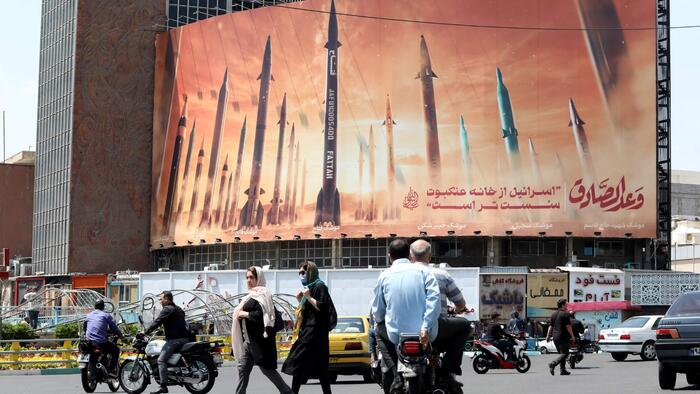During the Biden/Harris administration, Iran has significantly advanced its nuclear weapons program, reportedly capable of enriching enough weapons-grade uranium for nine nuclear bombs in a month. While estimates suggest Iran could have an operational nuclear weapon in nine months to a year, escalating military tensions between Iran and Israel have raised fears of a potential nuclear conflict in the region. Democrats, including Governor Tim Walz, have sought to attribute these developments to President Trump’s withdrawal from the 2015 Joint Comprehensive Plan of Action (JCPOA), claiming that this action eliminated a coalition effort to curb Iran’s nuclear ambitions. However, this assertion overlooks the flaws inherent in the JCPOA itself and the broader context of U.S. foreign policy toward Iran shaped by the Obama and Biden administrations, which often favored appeasement strategies.
The JCPOA allowed Iran to enrich uranium under the guise of peaceful use, a concession that disregarded the longstanding belief among previous administrations that Iran could not be trusted to manage uranium enrichment without covert intentions for military applications. This decision was concerning due to the availability of enriched uranium on the global market and the reality of Iran’s abundant energy resources, which made its pursuit of nuclear power economically nonsensical. Israeli Prime Minister Benjamin Netanyahu highlighted that the centrifuges Iran operated were fundamentally suited for producing bomb-grade material, thus putting into question the narrative of peaceful enrichment that the JCPOA purported to support.
The JCPOA has since been criticized as a dangerous charade. It lifted sanctions, funnelled substantial financial resources into Iran, and allowed the continuation of nuclear advancements while simultaneously failing to provide rigorous inspections. Secret side agreements emerged that undermined the existing inspections mandated by the International Atomic Energy Agency (IAEA), thus enabling Iran to escape accountability. Evidence of Iranian cheating, including clandestine nuclear activities and illicit technology acquisition, plagued the agreement from inception. Trump’s subsequent withdrawal from the JCPOA in 2018 elicited a dramatic shift in Iran’s compliance, revealing how the agreement had prohibited meaningful oversight over Iran’s actual nuclear endeavors.
As President Biden took office amid a commitment to revive the JCPOA, Iranian leaders perceived a lack of American deterrence. This emboldened Tehran to accelerate its nuclear ambitions. The Biden administration’s approach to negotiations demonstrated an eagerness to reinstate an agreement and even offered significant concessions that critics deemed reckless. These included the proposition to remove Iran’s Revolutionary Guard Corps from the U.S. terrorist designation list and allowing Iran to maintain corrupt practices connected to its uranium enrichment capacity while stipulating minimal conditions for its compliance. These discussions, including those in Vienna, highlighted a widening disconnect between the U.S. expectations and Iran’s steadfast refusal to cooperate based on legitimate national security concerns.
Negotiations collapsed amid escalated tensions and other agenda pressures, with Iran displaying little interest in genuine compromise while continuing to expand its military capabilities. The situation worsened as Iran established a rapport with Russia, aiding in arms supplies amidst the conflict in Ukraine, and worked alongside its allies to fortify an anti-Western alliance. This also coincided with increased reckless actions, including missile strikes against U.S. allies and forces, undermining the fragile stability of the region further.
The Biden administration’s policies have resulted in disastrous global security implications, exemplified by the October 7, 2023, Hamas attack on Israel, which many analysts tie back to Iranian funding and support. Although the administration has faced scrutiny for its alleged missteps, the administration’s attempts at blame-shifting toward the previous administration’s policies obfuscate the core failures of its approach. With Iran more capable of enriching uranium and funded to the tune of over $100 billion amid lax enforcement on oil sanctions, the current landscape in the Middle East spells increased peril for both regional and global security. A call for decisive leadership is made, suggesting that a strong U.S. president could rectify these miscalculations and reestablish the deterrent posture necessary to contain Iran’s nuclear threat and military ambitions.

